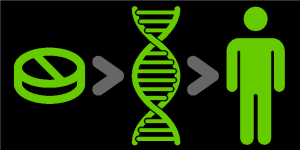Hello dear readers and welcome to Part 2 of our series Right Drug, Right Dose? The Perspective Expands. Before I present today’s offering please allow me a moment to thank all of you who have graciously responded to the series so far. It is indeed warming to me that you take some of your very valuable time, not only to read the blog, but also to consider it important enough to participate in the dialogue. My most humble thanks to each of you.
Now let’s get on.
Without question, Pharmacogenetics is coming to the benefits world, but this innovation is facing quite a number of misconceptions and fears. Our expert Dr. Ruslan Dorfman of GeneYouIn, has graciously provided me with the following spreadsheet to assist us in busting the myths that swirl and surround this most important of subjects.
| Pharmacogenetics (PGx) is new and unproven | The science of genetics influencing drug response is several decades old. Leading health authorities including Health Canada, FDA and many others have embedded specific recommendations on drug labels, with the aim to improve safety and efficacy of these medications. |
| Genetic testing impacts insurance | Pharmacogenetic tests CANNOT impact insurance, as they do not assess disease risk — only the genes related to drug response. |
| Physicians will not accept PGx test results | The majority of physicians believe that genetic factors influence drug response. Indeed, few primary care physicians have hands-on experience with pharmacogenetic testing.
Many psychiatrists and cardiologists have more experience working with genetic test results, and use pharmacogenetics to guide treatment choices. Pharmacists are well positioned to assist primary care physicians. Some service providers include on-line medication review by a pharmacist trained in pharmacogenetics. |
| Pharmacogenetics is not relevant for my drug plan – most of my medications are “cheap generics” | Although generic medications are cheap, they are high volume drugs and account for the largest part of drug spending: Benefits Canada published that the top 10 drug classes do not include biologics, but represent 68.4 % of total dispensed prescriptions and 58.4% of total prescription dollar value.
Pharmacogenetics applies to about 47% of prescriptions in Canada, and can reduce drug utilization. When reliable biomarkers are available for biological medications, these will become relevant as well. |
| We don’t have money to test every employee | Although everybody can benefit from prospective analyses, in practice, PGx testing only applies to employees who are actively taking medications, which limits the exposure to only 15-25% of employees. Co-pay and subscription models can reduce the upfront costs for employers. |
There you go dear reader, yet another level of clarity to help us all move forward in our understanding. I will warmly anticipate your comments and reflections. Look forward to next weeks Part 3.
Contact Glendinning Insurance Services with any questions.

